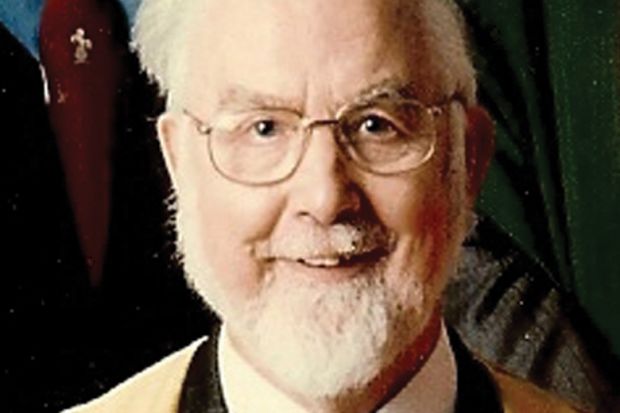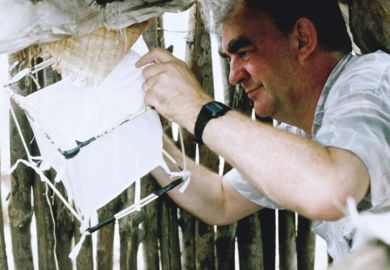John Barnes was born in Calverley – a village close to Bradford – on 27 August 1933 and educated at Taunton’s Grammar School near Southampton.
Since his father was a mechanical engineer involved in the design of gearboxes for submarines and tanks in the run-up to war, he developed an early interest in engineering and began producing model aircraft controlled by lines and then radios.
Such practical abilities were not always appreciated at school, where one of the masters often asked Dr Barnes and his twin, Robert, why they weren’t as clever as their older brother. He therefore decided to leave in 1950, after the first year of the sixth form, to take up an engineering apprenticeship at the Royal Aircraft Establishment in Farnborough, Hampshire.
He studied for an external University of London degree while working alongside some of the country’s leading engineers, learning about wind tunnels, fatigue testing, gas turbine technology and the many new materials that were transforming aeronautics. Witnessing crashes and other structural failures also left him with a deep sense of the responsibilities of aircraft engineers.
In 1956, Dr Barnes moved on to the Bristol Aeroplane Company (later Rolls-Royce) to work on the development of delta wings for Concorde. Two years later, he was headhunted by a company called Test Equipment.
By now, he had begun to do part-time lecturing at City Technical College in Bristol and Crawley College of Technology. He later decided to take on permanent positions at Borough Polytechnic (now London South Bank University) and then Kingston Polytechnic (now university), where he went on to become head of aerospace.
His career in academia was followed in 1983 by an appointment as Her Majesty’s Inspector for further and higher education in the Midlands, where Dr Barnes was responsible for 120 institutions.
He remained tireless in his advocacy for engineering and played a major role in establishing new degrees in aerospace, avionics and automotive engineering at Coventry, De Montfort and other universities.
He was awarded an honorary life fellowship by Coventry, and former vice-chancellor Michael Goldstein is in “no doubt that much of today’s aerospace engineering education would not have survived without his help and encouragement”.
Even in retirement Dr Barnes remained highly active in the cause of engineering, as co-founder of the Association of Aerospace Universities and education adviser at the Midlands Air Museum. He died in his sleep on 23 July and is survived by his wife, Anne, and two daughters.
Register to continue
Why register?
- Registration is free and only takes a moment
- Once registered, you can read 3 articles a month
- Sign up for our newsletter
Subscribe
Or subscribe for unlimited access to:
- Unlimited access to news, views, insights & reviews
- Digital editions
- Digital access to THE’s university and college rankings analysis
Already registered or a current subscriber?










